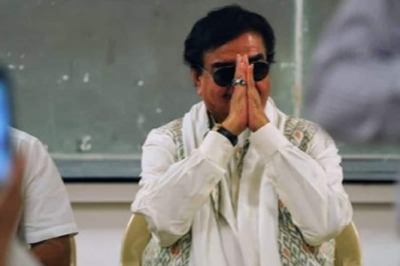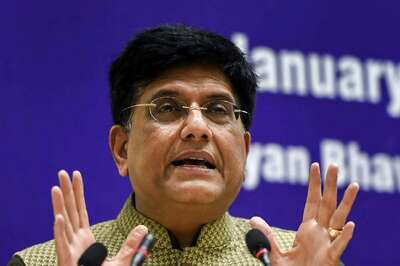
views
KOCHI: A recent medical report published by the Organisation of Pharmaceutical Producers of India found that 45 per cent of the patients in India prefer to go to a pharmacist when they have an ailment. While less than half this number, 24 per cent, prefer to consult a doctor. But how safe is it to take to administer powerful drugs, including antibiotics, without any medical advice?Based on accessibility, medicines are divided into two - prescriptive and over-the-counter. Prescriptive medicines must not be taken without consulting a doctor since the medicines are sensitive to the degree of disease and dosage. Over-the-counter (OTC) drugs, on the other hand, are milder medicines like pain-relief balms and cough syrups that can be brought without prescription. A combination of factors, including sky-rocketing consultation fees, low quality and availability of private doctors coupled with the inconvenience of standing in long queues to consult a doctor has meant that even educated city-bred population takes to the pharmacy next door as against going to a doctor. The demand for the medicines, in turn, makes many a pharmacist turn a blind eye to the prescription. “The demarcation between prescriptive drugs and OTC drugs is not strictly followed. When there is no prescription there can be a lesser dosage or under-dosage. In the case of antibiotics, this may often result in resistance of the disease to the drug,” says Dr Sachidananda Kamath, president of Indian Medical Association, Kerala. “The most-common antibiotic on demand are those for cough and cold. Azythromycin, Amoxylin and Cyprophloxin-500 are those used most often. When people demand these medicines it is not possible to say no. Many people make bulk orders for these antibiotics when they go abroad. They take about 30 tablets to eat as and when they get the disease. Some buy the medicines which the doctor would have advised them during the previous consultations,” says A S Ajeesh who works at a medical shop in Kaloor. But even taking the medicines advised by doctors during a previous consultation can have grave effects. “The symptoms are often very similar. So the patient might just take to an antibiotic which the doctor had advised for a different disease. The dosage and degrees too can create complications. The disease this time might be of a higher degree than the last time. This would mean under-dosage which can lead to resistance of the organism against the antibiotic. Interruptions and vagaries in the dosage too can lead to diseases. The problem is of varying degrees. But if it is a disease like TB, this kind of interruption can put the entire family of the individual in danger and lead to multi-drug- resistant TB (MDR TB),” says Ernakulam DMO R Sudhakaran. “Now, we advise doctors not to prescribe certain medicines because later when these are taken without prescription they can mask diseases like TB. Because of the slight anti-TB property of these medicines, they mask TB. So we will not be able to detect TB in a patient,” says District TB Officer K Savitha.


















![Kia Sonet Compact SUV to Launch in India Today: Watch it Live Here [Video]](https://cdn.rawisda.com/news/90/eb/76/90eb7699f91f82cb9d217ba52d313a8a-s.jpg)
Comments
0 comment